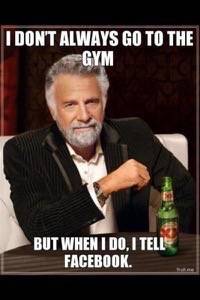
David Griner doesn’t think television advertising needs to be saved from the Internet and social media. On the contrary, Griner says television ads need to be saved from themselves.
“I personally find that most television ads are gutless and self-obsessed,” said Griner, director of digital content for the ad agency Luckie and a regular contributor to AdWeek’s AdFreaks blog. “They don’t take risks because television doesn’t reward risk taking. TV rewards pretty mediocre advertising.”
Griner, who spoke last week at the Blogworld & New Media Expo in New York, pointed to this year’s Super Bowl as case study No. 1: 166.8 million watched the game live; by comparison, more than 70 million people have watched the most popular advertisement to ever air on YouTube (it is, for the record, the Angry Burds trailer).
“Supplementing a television ad buy with an online campaign has consistently proven more successful than doing one without the other,” Griner said, noting Volkswagen’s popular Star Wars ad. The company originally started circulating the ad online five days before the game, which built buzz when the ad formally “premiered” during the game.
It’s still too early to declare that the television ad is dead. Yes, there are so-called “cord cutters” who are canceling cable subscriptions and using online viewing services; Griner has not had cable television for several years despite working in the industry. The U.S. has lost 2 million cable television households in the past two years. But the average American watches five hours of video content each day, and 98% of that video is still on television screens.
“Advertising is in a transitional state,” Griner said. “Digital has depth, and the merger is inevitable. It’s already happening.”
A RIght Way…
Griner said the most successful ad campaigns focused on engagement instead of reach. He pointed to Audi’s “Progress Is” campaign, which launched in the 2011 Super Bowl but ended up generating a yearlong dialogue using the #ProgressIs hash tag on Twitter.
“For us, it was never a discussion, it was always a hashtag,” Andy White, Senior Social Media Manager for Audi, told Griner. “The Super Bowl is conversation.”
But success wasn’t just limited to Super Bowl ads that filtered in a social component. Nutella boosted holiday sales in Germany by 15% with a video campaign on Facebook. And one of the most successful viral ad campaigns doesn’t have a hashtag tied to it, but has still managed to generate its own meme and boost Dos Equis beer from a sleepy, also-ran in the U.S. market to the sixth-leading import in the market.
Dos Equis has been posting double-digit revenue growth in recent years while the rest of the U.S. imported beer market has hovered at 2.7%. Griner said the video, which was nearly nixed by the brand, has succeeded by following a formula that has consistently worked for brands looking to create a viral ad.
“Most of them are funny and are very sharable,” he said. “They’re the digital water cooler fodder.
“And they are, with a few exceptions, still overwhelmingly watched on TV.”
… And A Wrong Way
But not every attempt to tie TV advertising to the social world has worked as hoped. McDonald’s has been trying to actively reach out to bloggers and social media influencers as part of its new advertising campaigns. It has tried to foster online discussions with Twitter hashtags. In other words, the company has been doing everything social media marketing experts say the company should be doing – and yet it still had a campaign blow up in its face.
McDonald’s wanted customers to share stories about McDonald’s on the #McDStories hash tag. While the company did get some positive responses, many more came from company critics. The hijacking of the hashtag was so persistent and so noticeable that it spawned a new term: BashTag.
“The hashtag,” Griner said, “was too vague and too detached from the point of the ads.”
McDonald’s rival Wendy’s is also struggling with the hashtag concept, assigning four different tags to a single campaign. In Griner’s opinion, the hashtags – #HeresTheBeef #UpgradeYourMeal #DefiningMoment #BetterLater – are too vague and confuse the issue. At the same time, the company has had to drop #HeresTheBeef because it drew a slew of innuendos.
“I’m not going to totally bash this yet because they could end up doing something really cool with this,” Griner said. “But right now, it seems chaotic to me.”

















